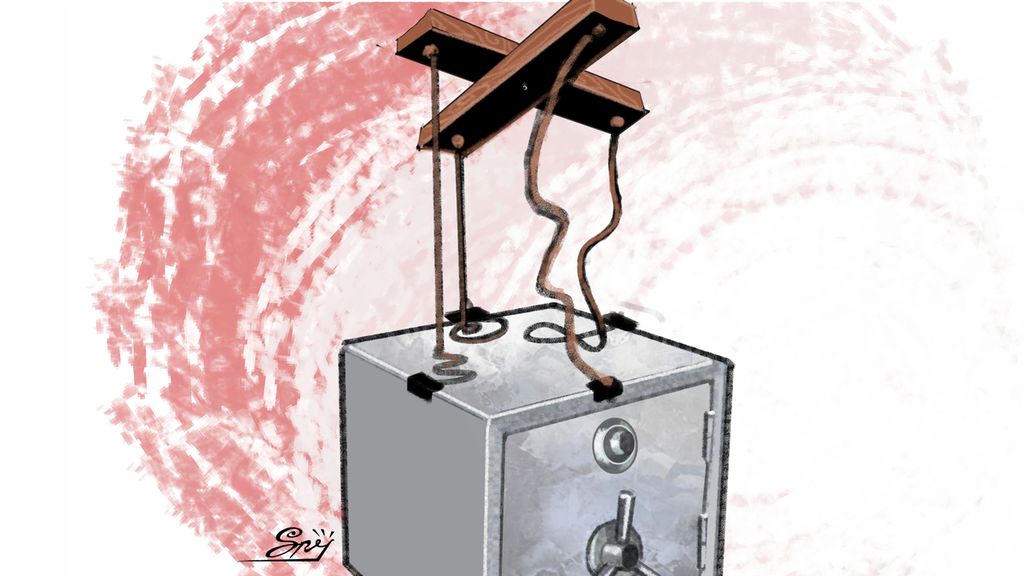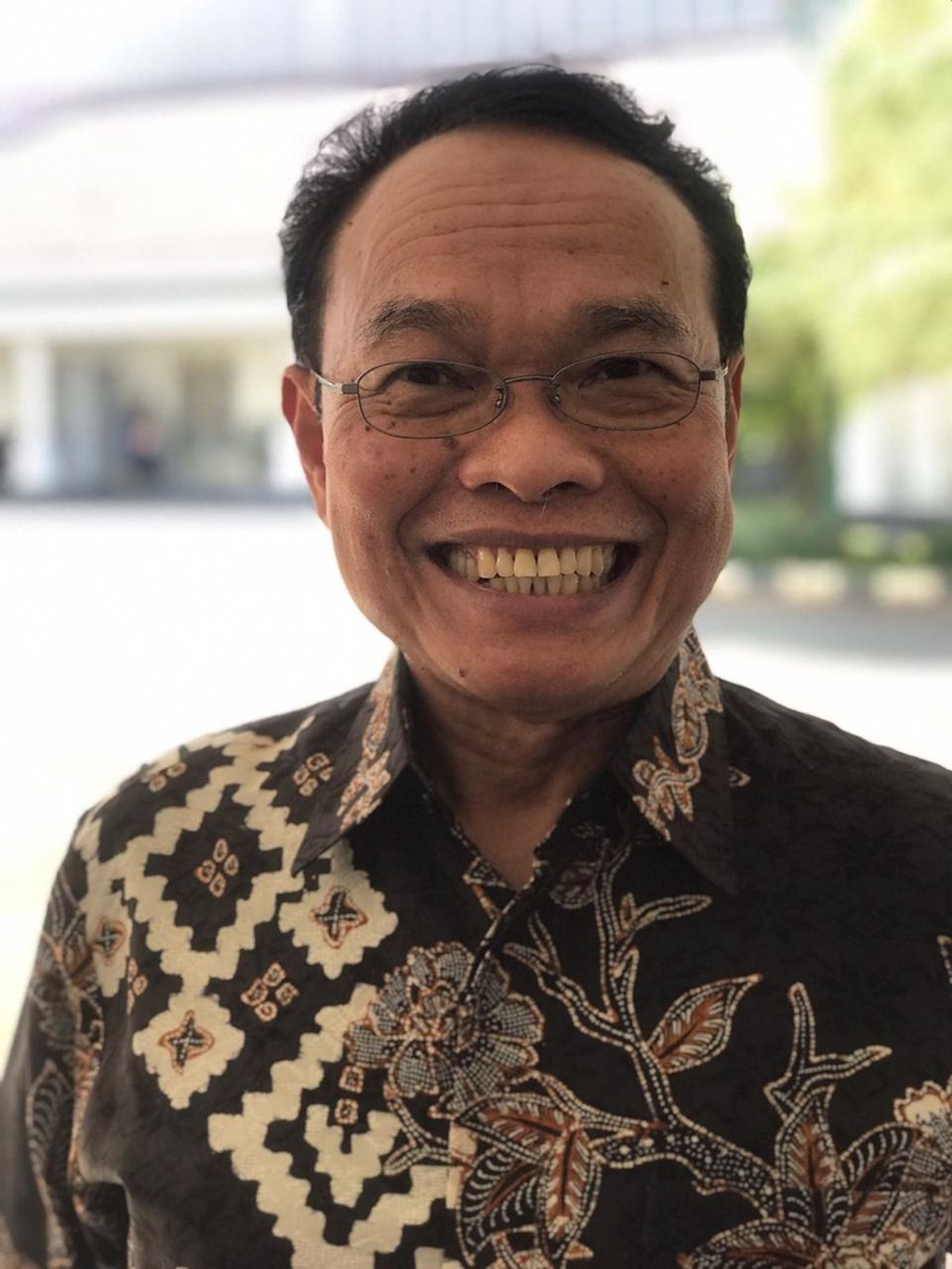Homework for Regional Autonomy in 2022
The 9 Dec. 2020 elections in 270 regions could also be held, even though Indonesia was in the midst of the Covid-19 pandemic.

-
Planning and implementing regional autonomy cannot be done only one time. It is a major national project that continues from era to era, from one president to another.
In the early years of the reform era, it was President B.J. Habibie who promoted regional autonomy (OTDA) to the fullest through the issuance of Regional Administration Law (UU Pemda) No. 22/1999, through which the regions received very large authority.
There was a “big bang” of decentralization, an antithesis to the centralization that had been implemented for 25 years by Suharto's New Order government (Principles of Regional Administration Law No. 5/1974). President Abdurrahman Wahid was the first leader to open the faucet of special autonomy for Aceh (NAD Law No. 18/2001) and Papua (Law No. 21/2001).
Also read:
Spurring Regional Economic Activity
President Megawati Soekarnoputri changed the regional elections (Pilkada) from an indirect election (voted by the Regional Legislative Council/DPRD) to a direct election (voted by the people), and introduced concurrent powers between the central government and regional administrations (UU Pemda No. 32/2004).
President Susilo Bambang Yudhoyono provided concrete recognition of the Yogyakarta Special Region (DIY) as a special region (DIY Special Law No. 13/2012), strengthened the existence of special autonomy for Aceh (Aceh Administration Law No. 11/2006), issued a separate Pilkada arrangement through Regional Elections Law No. 22/2014, and clarified the division of concurrent powers so it was more clearly defined and did not overlap (UU Pemda No. 23/2014).
Yesterday (Thursday, 17 Feb. 2022), President Joko Widodo has just introduced a policy to relocate the nation’s capital city (IKN) from Jakarta to a site spanning parts of Kutai Kartanegara regency and North Penajam Paser regency in East Kalimantan province (UU IKN). Jokowi has also decided against holding a simultaneous election as organized in 2022 (101 regions) and in 2023 (171 regions) and instead hold a single-day election, the simultaneous national elections on 27 Nov. 2024 (541 regions) in accordance with UU Pilkada No. 10/2016.
Consequently, the vacant positions for regional heads will be temporarily filled by Echelon I (JPT Madya) officials for 25 governorships and Echelon II (JPT Pratama) officials for 247 regency leaderships and mayorships. Jokowi has also succeeded in revising Law No. 2/2001 on Special Autonomy (Otsus) for Papua through the issuance of Law No. 2/2021, which increased the ceiling for the special autonomy fund from 2 percent to 2.25 percent of the general allocation fund (DAU) and paved the way for the local administrations in that province.
In fact, Fiscal Balance Law No. 33/2004 on fiscal relations between the central government and regional administrations, which has existed for a dozen years, can be replaced with the Central-Regional Fiscal Relations Law (UU No. 1/2022), which further encourages regional budget management and fiscal autonomy.

The 9 Dec. 2020 elections in 270 regions could also be held, even though Indonesia was in the midst of the Covid-19 pandemic. Unfortunately, last year, Jokowi cancelled UU Pilkada No. 10/2016, which was costly, and 446 regional heads/deputy regional heads were sent to prison for their involvement in corruption cases. Its deliberation at the House Legislation Body was discontinued without offering a clear reason. It is feared that the results of the 2024 simultaneous regional elections will not eliminate corrupt behavior among regional heads.
Recentralizing by pulling the mining sector under the authority of the central government (Law No. 3/2020) and various permits through the Jobs Creation Law No. 11/2020, as well as the unifying the regional administration information system have dampened the enthusiasm of regional officials in carrying out localized regional affairs. The space for autonomy is getting smaller and smaller.
The recentralization policy of Jokowi, who was once the Surakarta mayor, is a step backward for regional autonomy. Jokowi only has around two years (2022 and 2023) to tackle the remaining tasks regarding regional autonomy. Meanwhile, during the 2024 election year, the government will of course enter the lame duck period, unable to make strategic policies anymore.
There are three important tasks that Jokowi must do well in 2022 amidst the rising political temperature ahead of the presidential, legislative and regional elections, the war against Covid-19 and limited state finances.
New capital city
The first task is to outline and issue the various implementing regulations of the IKN Law, comprising five government regulations (PPs), five presidential regulations and four presidential decrees. Parallel to that is to recruit candidates to fill the Nusantara Authority (Otnus) administrative organization, namely the governor and deputy governor of the new capital who are to also serve as the respective Otnus head and deputy head, as well as the administrative staff. At least 100-200 employees must be recruited as Otnus employees at this early stage to take care of the development, transfer and administration of the Nusantara capital city government, which is scheduled to start in the first half of 2024.
Also read:
Capital City Relocation must be Public
Otnus offices and operational funds must also be provided. Likewise, funding must be provided for the physical development of IKN this year, from both the State Budget (APBN), which is reportedly not yet unavailable, or non-APBN sources.
The work that needs to be done increases with the President's task to draft a bill on Jakarta Province with special authorities in the economic-business sector to replace the Law No. 29/2007 on the Jakarta Special Capital Region.
The development of the physical structures of the IKN, such as state palaces, the House of Representatives (DPR) buildings, high-level state institutions, and ministries, along with their supporting facilities and infrastructure can be carried out by Otnus or the ministries/institutions (K/L) as assigned by the President. This means that the President must be the "foreman", so all activities run harmoniously and according to the target. The work that needs to be done increases with the President's task to draft a bill on Jakarta Province with special authorities in the economic-business sector to replace the Law No. 29/2007 on the Jakarta Special Capital Region.
Of course, the President, a former Jakarta governor, will devote his attention so that Jakarta, which would soon become the former national capital, will not perish (sink) once the capital is relocated. Indeed, according to local legislation theory, the initial draft of the bill was prepared by the Jakarta provincial administration under the leadership of Governor Anies Baswedan, but the President will submit it to the House. The President should listen to the voices of the residents of Jakarta and the Betawi people in preparing this bill. Public participation should be provided with sufficient time.
Recruiting officials
In the second task, the President must appoint 101 acting regional heads (8 governors, 76 regents and 18 mayors) from among the local bureaucracy from May to December 2022. These civil servants (PNS) are to be appointed from the top-level bureaucracy (central or provincial level). They will lead the local administration over a term of office for an average of a number of years, with some positions even approaching three years.
Their duties are to carry out not only regular administrative matters, such as public services, but also regional development, handle Covid-19, recover the economy, facilitate the smooth organization of
elections and simultaneous national elections, and establish the regional budget (APBD) together with the local legislature (DPRD). For areas like Papua, the acting regional head must also manage conflicts.
Meanwhile, as of February, there have been no clear rules regarding the selection and training of the officials that will serve as acting regional heads for a prolonged duration due to the absence of vacancies for regional heads/deputies. This has prompted opinions from Senayan to involve the House in the fit and proper test of the candidates for acting regional heads to ensure that there are no irregularities in their appointments, such as "nepotism", power intervention and bribery.
The President therefore needs to issue a regulation, such as a government regulation, to avoid noise in the appointment of acting regional heads during an election season full of interests. It would be more appropriate to issue only a Perppu to extend the terms of office of the current regional heads and deputy heads in the event of a vacancy, until the regional head-elects of the 2024 simultaneous national elections are inaugurated, because it is safer, more democratic, effective, and practical, or “uncomplicated", can avoid various allegations of fraud, has strong legitimacy (the results of the last regional election), and has long experience in leading the local administration, including during the pandemic.
Creating a new province in Papua
The third task relates to the consequences of issuing UU Otsus Papua No. 2/2021. The President must not only allocate special autonomy funds of 2.25 percent of the national DAU ceiling in the 2022 APBN, but must also be prepared to accept proposals on creating new provinces or regencies in that region. In fact, since 2014, the door for the creation of new provinces or regencies has been closed (moratorium).

Issues circulating in public reportedly say that Papua’s provinces will be increased from two to six. Papua province, as the parent province, will be divided into four: Papua, Central Papua, Central Highlands and South Papua. The province of West Papua is divided into two: West Papua and Southwest Papua. According to the plan, the four new provinces will be formed in 2022. In early 2023, the four acting governors are to be appointed from the civil service corps. The goal is for the four new provinces to participate in the simultaneous national elections slated for November 2024. The mechanism for forming a province in Papua does not go through the preparatory regional stage (administrative provinces) according to Regional Government Law No. 23/2014, and this stage is exempt as stipulated in the UU Otsus No. 2/2021.
They don't want to know that Papua is being allowed to create more provinces because it has special autonomy status, so there may be dispensation.
The Jokowi administration will of course have to dig deeper into its pockets to finance the four new provinces. Indeed, the parent province has provided assistance to new provinces for several years, but the amount of funding is very limited. The central government must also be prepared to face a wave of demands from several regions across the country calling for the creation of a new province or regency. Once the moratorium is lifted on the creation of a new regional entity, or pemekaran, the regions will be competing to catch up. They don't want to know that Papua is being allowed to create more provinces because it has special autonomy status, so there may be dispensation.
Also read:
Volume II of Papua’s Special Autonomy?
The North Sumatra administration has long wanted to split the province into six new regions. The political elite has urged the creation of new regencies and cities in West Java. It is the same in other areas. As a result, it is possible that the 2022 political year will be even more “noisy” from the discussions over these three tasks. In fact, the general rule is that if you want the elections to run well, the government should not issue “controversial” policies.

Djohermansyah Djohan
Djohermansyah Djohan, Professor at Governance Institute of Home Affairs (IPDN); director general of regional autonomy (OTDA), 2010-2014; founder of i-OTDA
(This article was translated by Kurniawan Siswo)